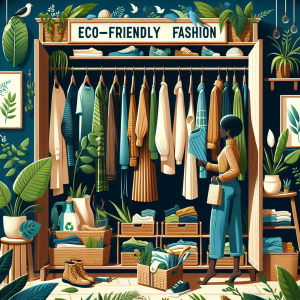Understanding Plastic Pollution
Every year, millions of tons of plastic end up in our oceans and landfills, where they can take hundreds of years to decompose. This pollution is not only an eyesore but poses significant threats to wildlife, ecosystems, and human health. Plastic waste often breaks down into microplastics, which can infiltrate our food chain, leading to potential health risks. Reducing personal plastic consumption is crucial for a healthier planet.
Assessing Current Plastic Usage
Before embarking on a plastic-free journey, it’s essential to understand your current usage. Track your plastic consumption over a week. Take note of single-use plastics such as bags, bottles, straws, and packaging. This critical step highlights the extent of reliance on plastics and pinpoints key areas for improvement.
Prioritizing Reusable Over Single-Use
Bags and Bottles: Invest in reusable shopping bags and stainless steel water bottles. Each reusable bottle can save up to 167 single-use plastic bottles annually. Similarly, a sturdy tote bag can replace hundreds of plastic shopping bags each year.
Café and Cup Choice: For coffee enthusiasts, opting for a reusable cup can make a huge difference. Many cafes offer discounts for bringing your own cup, further incentivizing this sustainable practice.
Rethinking Food Storage and Packaging
Beeswax Wraps vs. Plastic Wrap: Beeswax wraps are a sustainable alternative to cling film. They are washable, reusable, and compostable, making them an excellent choice for wrapping food.
Glass Jars for Food Storage: Reusing glass jars from past purchases not only prevents additional waste but also provides a clear view of stored contents, making kitchen organization both practical and visually appealing.
Bulk Buying: Reduce packaging waste by buying in bulk. Bring your own containers to bulk food stores, which often sell grains, beans, nuts, and other staples without unnecessary packaging.
Eco-Friendly Personal Care
Biodegradable Products: Switch to biodegradable toothbrushes and hairbrushes made from bamboo. These alternatives are just as effective as plastic ones and break down more easily at the end of their life cycle.
Solid Personal Care Products: Solid shampoo bars and soap bars often come packaged without plastic, offer a great lather, and last longer than their liquid counterparts. Look for brands that offer minimal paper packaging or wrapping.
Reducing Plastic in Cleaning and Household Goods
DIY Cleaning Solutions: Homemade cleaning products using natural ingredients like vinegar, baking soda, and lemon can replace plastic-bottled cleaners. They are non-toxic, eco-friendly, and often cheaper.
Sustainable Sponges and Cloths: Opt for biodegradable sponges made from natural fibers. Microfiber cloths are also reusable and can reduce the need for paper towels.
Fashion and Textiles
Opt for Natural Fibers: Clothing made from natural fibers like cotton, wool, hemp, and linen decompose more readily and do not shed microplastics during washing. Favoring these materials over synthetics contributes to a cleaner environment.
Secondhand Shopping: Thrift stores and online resale platforms offer a treasure trove of stylish pre-loved clothing. This not only reduces demand for new plastic-laden textiles but also helps in curbing fast fashion’s environmental impact.
Mindful Dining
Eating Out Tips: Where possible, dine in restaurants with metal cutlery and avoid fast-food chains with excessive plastic options. Carry a set of portable cutlery, reusable straws, and a carry-out container for leftovers.
Supporting Sustainable Brands: Choose restaurants and cafes that demonstrate a commitment to sustainability. Many establishments disclose their environmentally friendly practices and encourage customers to participate in reducing waste.
Advocating for Policy Change
Support Legislation: Get involved in local and national movements advocating for bans or taxes on single-use plastics. This collective action can accelerate significant legislative changes and lead businesses to adopt more sustainable practices.
Community Involvement: Engage with local organizations focused on reducing plastic waste. Participating in beach or community cleanups not only helps the environment but raises awareness about the importance of plastic reduction.
Continued Education and Adaptation
Staying Informed: Keep updated on the latest in sustainable practices and materials. The field of eco-friendly technology is constantly evolving, offering new solutions for reducing plastic waste.
Adapt and Innovate: Be open to new ways of reducing plastic. Whether it’s trying out new sustainable products or finding more effective ways to recycle, continuous improvement is key to a successful plastic-free lifestyle.
Building a Plastic-Free Community
Sharing Tips and Resources: Encourage friends and family to join the movement. Share experiences, challenges, and solutions to build a supportive network committed to reducing plastic.
Hosting Workshops: Consider organizing workshops or seminars to educate others about the importance of plastic-free living. Local libraries, community centers, or online platforms can be excellent venues for outreach.
Balancing Efforts with Realism
Accepting Imperfections: The transition to a plastic-free lifestyle isn’t about perfection. It’s about making conscientious decisions that collectively lead to significant change. Set realistic goals, and celebrate small victories along the way to maintain motivation and enthusiasm for the journey ahead.




